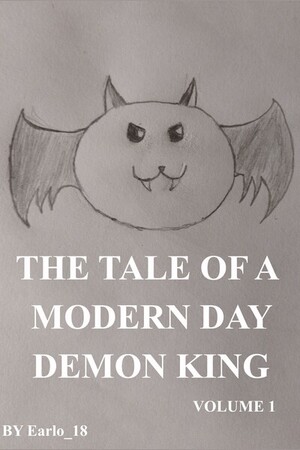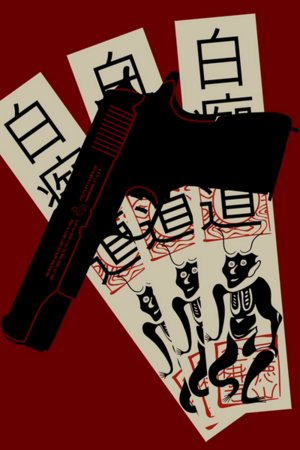Chapter 3:
Possibility
ASA Genesis
I had spent the first two months of life in the Pits obsessing over plans to return to Kamikoshi City. Deep down I had known that this was impossible, but I forced myself to try and find a way. Reality had set in quick, and I had been further discouraged from trying to escape knowing that the Pits were patrolled by OMNI police units.
Circumstances required that I adjust quickly to my new life. In doing so, I learned things about the Pits that I guessed most in Kamikoshi City were unaware of. Most notably, I learned that the Pits had originally been set up as an agricultural town, but was neglected adequate funding in favor of immense hydroponic systems in the Mid and Upper-Cities. This saw the originally planned town transformed into a shanty town where those people who had been chased out of the Lower-City moved to.
The Pits had earned its name back in Kamikoshi’s early days. There had actually been pits here, massive holes dug with the intent on burying any waste. However, after masses of waste began to pile up in the Lower-City at a rate too quick to manage, the decision was made to fill the holes but never cover them.
The Pits were divided into five sectors. Each sector had a certain number of workers based on the amount of waste that needed to be dealt with and the composition of the waste in that particular sector.
Near the center of the Pits sat the only real remains of the once planned town. Here was where actual families had lived, generation after generation. It was a close-knit community where everyone knew each other by name. The first time I had set foot here I couldn’t help but recoil at the sight of it, the smell most of all. I wondered how people could live like this. But later after spending hours working in trash heaps, I grew to recognize it as the only semblance of actual human civilization I was afforded.
The first sector I worked in was Sector Two. This was the sector where plastics were disposed of. OMNI units operated huge grinding machines that ground down heaps of plastic into smaller pellets which would then be sent back to Kamikoshi City to be reused, and, one day, sent back to the Pits.
At the end of my first year in Sector Two, I was transferred to Sector One. This sector was where all of the metal waste was brought to rot. It was in Sector One that I had met the lively Hanzou, who had been born in the Pits and been raised to work like everyone else who had the unfortunate luck of living here. With Hanzou as my roommate, I quickly realized that I wouldn’t be able to ignore his energetic self. What I really found interesting about Hanzou was that even though he had been born into unfortunate circumstances, he was still truly optimistic.
Hanzou helped me understand more about the folks who lived in the Pits. “All these people here,” he had said as we sat in town waiting for the transport to take us to Sector Two, “they’re just normal people. They wish they could live up there in the city, but no one there wants us. So we do what we can with what little we have. And you know what? We’ve made it this far.”
This had reminded me of a story my father had told me as a child. Hundreds of years ago, our family ancestors had lived in a forest village near Mount Fuji. The Mori’s had been outcasts for some reason or other, forced to hide among the trees. It was a cause for shame, my father had told, but to me now there would be nothing I wouldn’t give to escape the Pits and disappear into a cool forest, sheltered beneath the boughs and dark leaves. A hopeless dream, as there were no living forests left on Earth.
On my darkest days, Hanzou was there to cheer me up. I was slow to tell him my story, afraid that he wouldn’t believe me. The day I did tell it was the day when I saw Hanzou’s serious side for the first time.
“Heartless bastards,” he had said. We had been in the middle of cleaning up our OMNI units one evening.
“I think about it every day,” I had said. “The Kazama’s forced me here.”
“You must really hate them,” said Hanzou.
“Of course I hate them!” I spat.
Hanzou jumped at my sudden outburst and stared at me for a moment before sprouting a thin smile. “I’m sorry,” he said. “Stupid question. I understand what you must feel like.”
“Do you?” I said, still feeling irritated. “I’m not sure.”
“I do, actually,” said Hanzou. “As a kid, I hated everyone who lived in Kamikoshi.”
“I was wrong to lash out,” I said. “Sorry. It’s just... it’s just all too much for me to handle sometimes.”
“Look, Takuma,” Hanzou said, “I don’t know what the city is like. What I imagine is probably far from the truth. But you know what it’s like. You belong there, not here. That’s why it’s hard. It’s normal to feel that way.”
In my silence I collected my thoughts and cycled Hanzou’s words through my head. “You know,” I said, “if I didn’t know you, I’d probably be dead by now.”
Hanzou recoiled at my words. “What does that mean?”
“Nothing,” I said. “I’m just thinking out loud.”
---
Nothing ever changes in the Pits. Day after day, we ate the same food, endured the same brutal work, and, after another verbal berating from Shota, went to sleep that night knowing the next day would be the same. Sure I had Hanzou to talk to, and he certainly made life a little easier, but the monotony of life in the Pits was never-ending.
One thing I never grew tired of was lying in bed at night and staring at the ceiling wondering what my father and mother were doing. Would the Kazama’s have treated them well? Would my parents have cooperated? I couldn’t be sure.
Early the next day, we finished unearthing the old gunship. Shota came to inspect it, and I guessed he wanted to salvage the valuable metals contained within its circuitry, which would surely turn a good profit. We were allowed to take a longer break while Shota had the gunship moved to a different location, yelling at anyone who got near it.
Sitting in the only shade we could find, Hanzou and I ate our usual rice balls and then got to talking about various things. He confessed to me that there was a girl he liked in town, and wanted my advice on how to go about confessing to her. I admitted to him that while I was older than he, I wasn’t any less clueless about the process.
When Shota came back to give us our new orders for the rest of the day, our squad, along with squad two, was instructed to help squad one with sorting.
Obeying our new orders, we joined squad one in sorting the largest pieces of scrap from the smaller pieces which were then placed into large dumpsters. These dumpsters would then be airlifted to the smelter where the scrap would be melted down to be reused.
Each worker’s OMNI unit stood in single file and passed the largest pieces of metal one by one to be tossed into the dumpster. I got to work sorting through the smaller pieces, which were just being put into a pile for the moment.
As I combed through all manner of metal scrap, sweat pouring down my face and soaking my uniform, my eyes fell on something shiny glinting in the sunlight. At first my brain registered this thing as something familiar, but I quickly brushed it off as a symptom of the hot day. When I went to pick it up, however, I knew instantly my brain had been correct.
I had found the core of ASA 1.0.
It was unmistakable. I had held this exact part in my hands four years ago in my father’s lab. There was the CPU with the name Mori Robotics Co. stamped onto it. I was beyond shocked that I almost forgot to breathe. Where had this come from? Why was it here? I couldn’t stop staring at it. Seeing it brought back the same memories of that terrible day.
“Hey, Takuma!” came Hanzou’s voice as he made his way over to where I stood. “What you got there, man?”
I quickly tried to hide what I was holding, for fear that someone would try to take it from me. It was useless, however, for it was impossible to hide. “Oh, um,” I stuttered. “I just, well...”
“Spit it out,” Hanzou said, wiping some sweat from his brow.
“This... is a robotics part,” I said.
“Yeah?” said Hanzou, eyeing the part clutched tightly in my hands. “Looks neat. I know you’re really into robotics, but we can’t keep anything here, as you know. Just put it over there.” He pointed in the direction of the large pile nearby.
“No,” I said firmly, a little too firmly.
“Hey,” said Hanzou. “What’s up? Are you feeling okay?”
“Hanzou,” I said, trying to keep my voice low. “This thing, this is something my father built.”
Hanzou, now realizing why I was holding onto it so dearly, looked from side to side to see if anyone else was watching. “Are you serious?” he asked, his voice hushed.
“Yes,” I said. “Remember that project I told you I helped my father on? ASA? The android my father built?”
“Yeah.”
“This was inside it,” I explained. “This was its core.”
“So, what does that mean?”
“It means that ASA was scrapped,” I said. “The rest of it must be around here somewhere, but if so it’s probably beyond repair.”
A new thought now fell into my head, and an ambitious one at that. I didn’t need the other parts. I had the core, the CPU. I also had a working OMNI unit and a K-Link. If I could somehow install the core inside my OMNI unit and boot up ASA, I could use ASA to access the Net, a capability an OMNI unit didn’t have. After that, anything was possible. Everything was connected to the Net.
Hanzou was staring at me with concern. “What are you thinking?” he asked. He had seen me look this way before.
“I just got an idea,” I said. “Hanzou, I’ll be right back!”
“Wait!” Hanzou said, grabbing my arm. “What are you doing? If they find out you’ve left the worksite you’ll get in trouble.”
“I have to go,” I said, pulling my arm from Hanzou’s grip.
Running as fast as I could, I made it back to our shanty. I had to hide the ASA core somewhere. Choosing to place the core on the side of my bed next to the wall, I then sat on my bed to catch my breath. I was feeling lightheaded. The room was spinning.
The next thing I knew, I was on the floor.
---
When I regained consciousness, I could feel that I was lying in my bed. There was something attached to my arm. Looking through my eyes like slits, I could make out that it was an IV, the bag of electrolytes hanging from the bed post.
“Oh, you’re awake?” I heard a familiar voice say. It was Hanzou.
“What happened?” I asked, my words frail. My head ached, and an unmistakable weakness clung to my body.
“You fainted from heat exhaustion,” said Hanzou. “I knew something was wrong when you didn’t come back to the worksite, so I went looking for you. I found you here, passed out. I went and got the medical unit.”
I suddenly remembered the ASA core. “The core?” I said. “Did they take the core?”
“Oh no,” said Hanzou, smiling. “I found it. It’s over there in that drawer.” He pointed.
“Hanzou,” I said.
“Yeah?”
“Thank you.”
“No problem, man,” he said. “But what are you going to do with it?”
“Something crazy,” I said.



Please sign in to leave a comment.